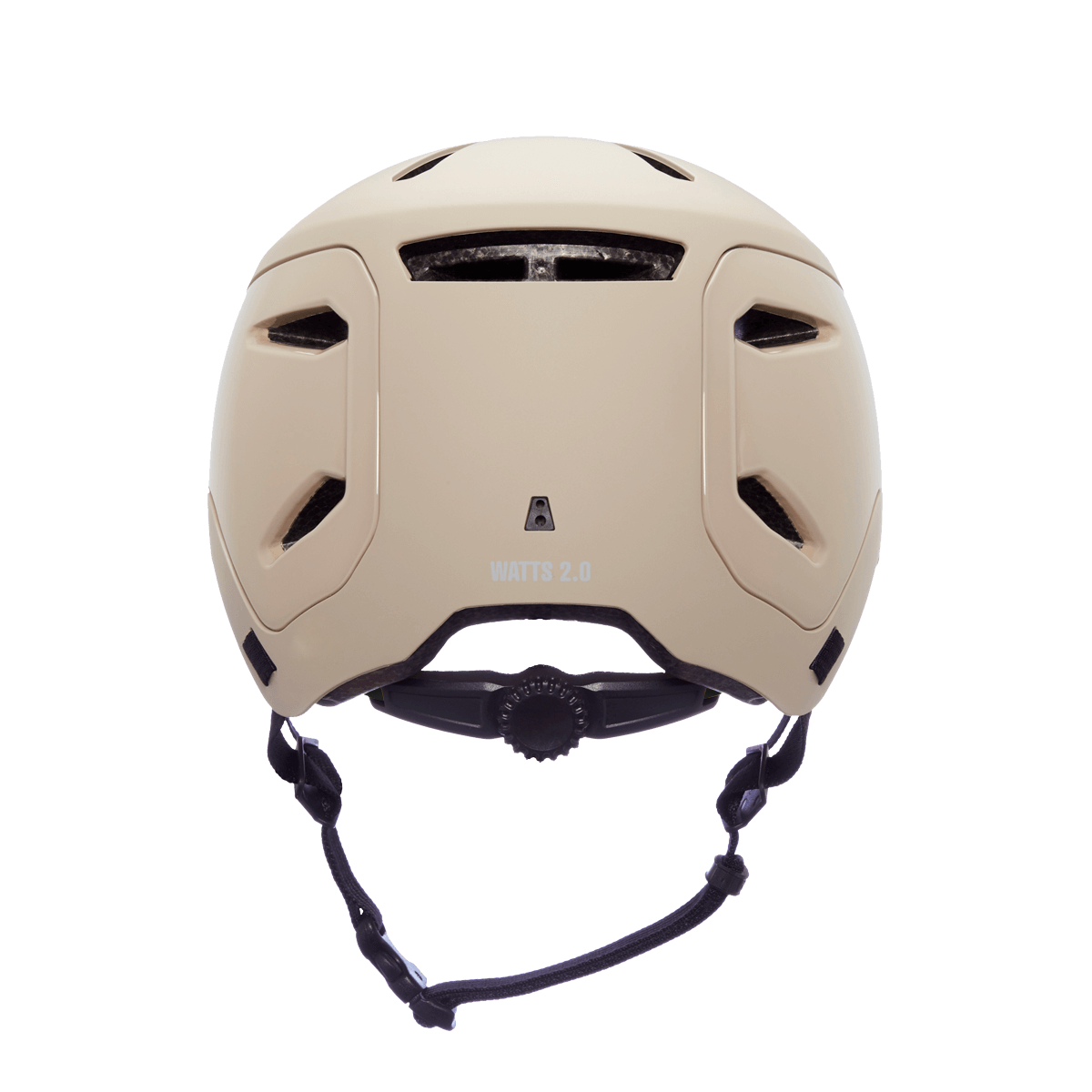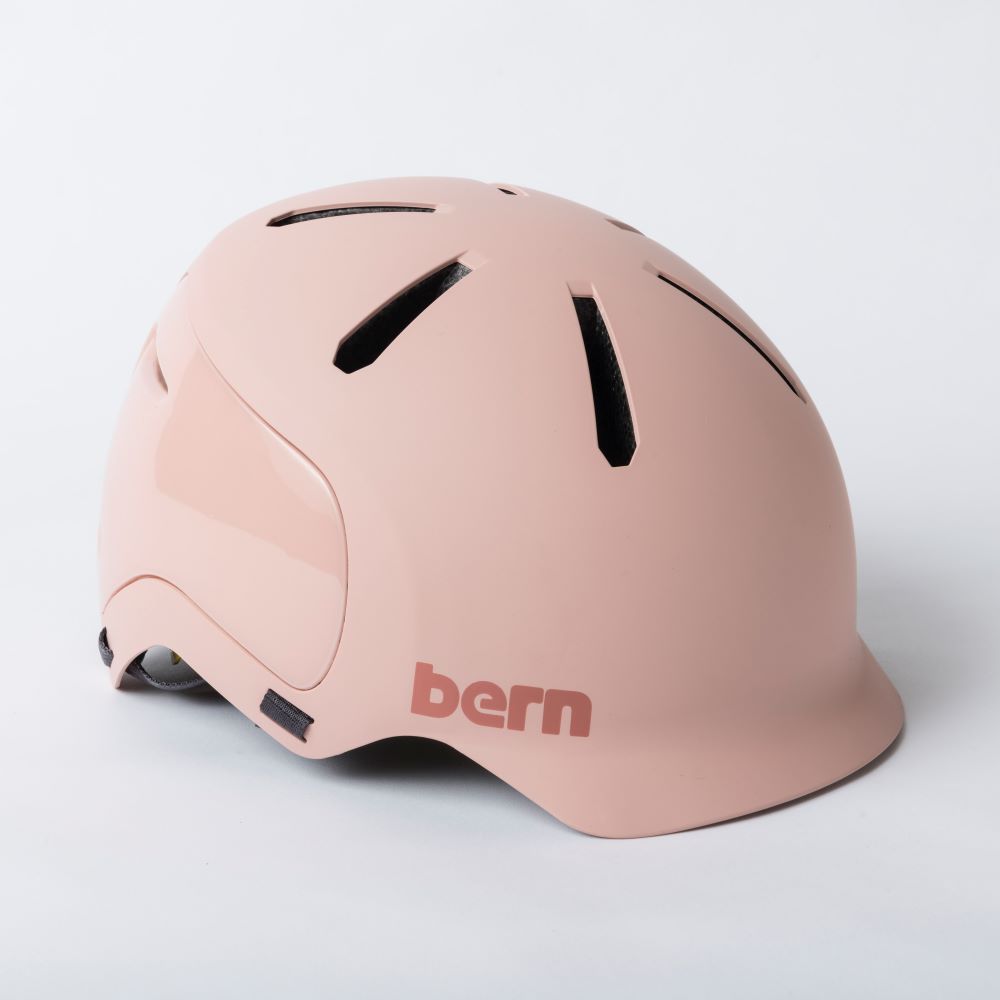
The reduction in open spaces on the head also means that in foul weather the Bern Watts helmet is far better at keeping your head warm and dry, with far less chance for the elements to gain access to the head. Its lack of vents wasn't really an issue as my commuting is generally done at a slower pace so the heat build-up is significantly less, having said that the rudimentary venting at the top performs an adequate role, reducing the likelihood of arriving at work looking like a hot mess. In use, the Watts is comfortable on the head, sitting snugly, with a relatively lo-tech strap system, that works perfectly well. It just feels 'safer' than a standard road helmet, and while that may or may not actually be the case, in my instance it helped to appease Mrs Cox, and quite frankly that's got to be a good thing.

High tempo performance is clearly not on the design agenda at Bern HQ, but what is evident from even a cursory glance is the effort that has gone into designing a comfortable and practical helmet.įrom a commuting point of view the Bern Watts is a really sensible helmet, with protection from the sun in the form of a visor, and a level of neck/rear of skull protection with the extended rear. Bansard said.Anyone hanging around on street corners in almost any city of a decent size will surely have notice the popularity of urban-styled helmets, and with its solid, reassuring, shape the Bern Watts helmet is seemingly leading the charge in urban headwear. Doctors and interns sometimes enjoy lunchtime surf sessions, Dr. “I like the mentality, the rural life, the living environment,” he said as he contemplated the panoramic seaside view from his office. “We hope they’ll have a crush.”Īxel Guérin, 25, a doctor in training at the University of Caen who is working at the health center in Les Pieux, said he was planning to stay in the region after his six-month residency. Local authorities are trying to attract young doctors to underserved, rural areas with incentives like covering tuition for newly graduated physiotherapists. According to the Senate report on medical deserts, Paris and the French Riviera have about 400 general practitioners and specialists per 100,000 inhabitants, while the national average is roughly 340. But the gap between metropolitan areas and rural areas has been widening. To fix the doctor shortages in certain regions, the French government tried to increase supply last year by eliminating a cap on the number of medical students. The coronavirus pandemic has made staffing problems worse, she said.

After an eight-minute drive along Normandy’s coast, he met Natacha Carlat, a nurse who took him to two elderly patients. Jardel left with his motorcycle for a local nursing home.

“To see one ophthalmologist, you have to wait at least six months, whereas when I was living in Paris, it took less than 48 hours and I had the choice between several.”įollowing a morning of home visits and consultations, Dr. “The waiting time is appalling,” said one patient, Didier Duval, 62. The doctors in Les Pieux already have 1,800 to 2,200 patients each, while the national average is roughly 900, making it “impossible” for newcomers to find an attending physician. Located roughly 60 miles from Omaha Beach, it is an exception on the Cotentin Peninsula, which is affected by a scarcity of specialists like dentists - only 33 for 100,000 inhabitants. More than 30 people, including midwives and psychologists, work at the health center where Dr. Jardel offers an irresistible deal to overworked doctors: He replaces them for two weeks while they go on vacation.

But unlike the prestigious cycling race, his journey took him to what the French call “medical deserts” - areas suffering from an acute shortage of physicians. Jardel, 30, decided to go on a five-month “Tour de France” trip. Piquot replied, looking at the young doctor with vacant eyes. Piquot, a former employee of an aviation company. Jardel asked after arriving at the single-story house, speaking louder for the hard-of-hearing Mr. “When was the last time you had a blood test?” Dr. Michel Piquot, 92, standing on his doorstep in blue slippers, was waiting impatiently. For his last day on Normandy’s Cotentin Peninsula, he was ready to hit the road along the English Channel to visit a patient. Martial Jardel took his black motorcycle out of his camper van, put his helmet on and started the engine. LES PIEUX, France - On a sunny but chilly June morning, Dr.


 0 kommentar(er)
0 kommentar(er)
